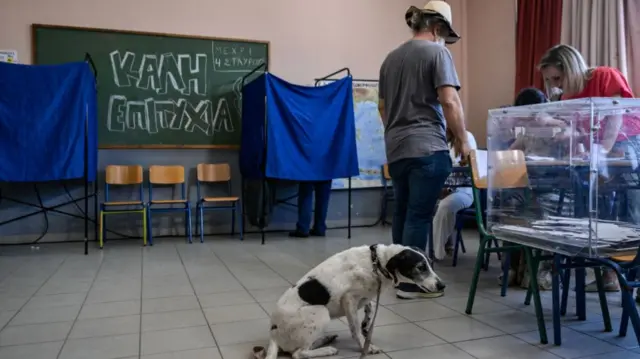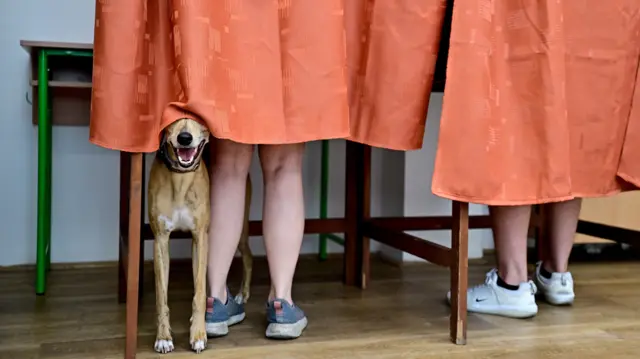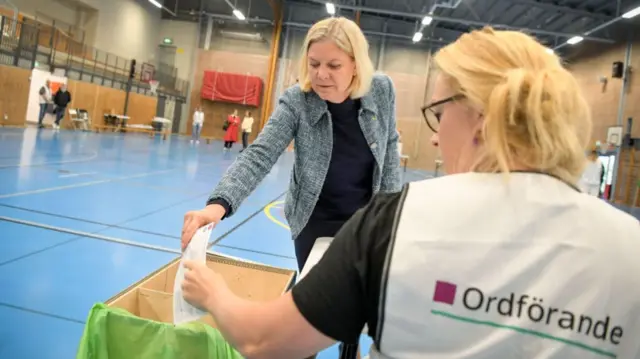The election in numberspublished at 14:14 BST 9 June 2024
 Image source, ARIS MESSINIS/AFP
Image source, ARIS MESSINIS/AFP- Countries taking part: 27
- MEPs to be elected: 720, 15 more than in 2019
- Candidates for MEP: Over 15,000
- Eligible voters: About 370 million
- Germany - the EU’s most populous country, with 83 million - gets 96 MEPs
- Cyprus, Luxembourg and Malta, with the EU’s smallest populations, get 6 MEPs each
- 2019 saw the highest turnout in 15 years, with just over 50% of eligible voters taking part




